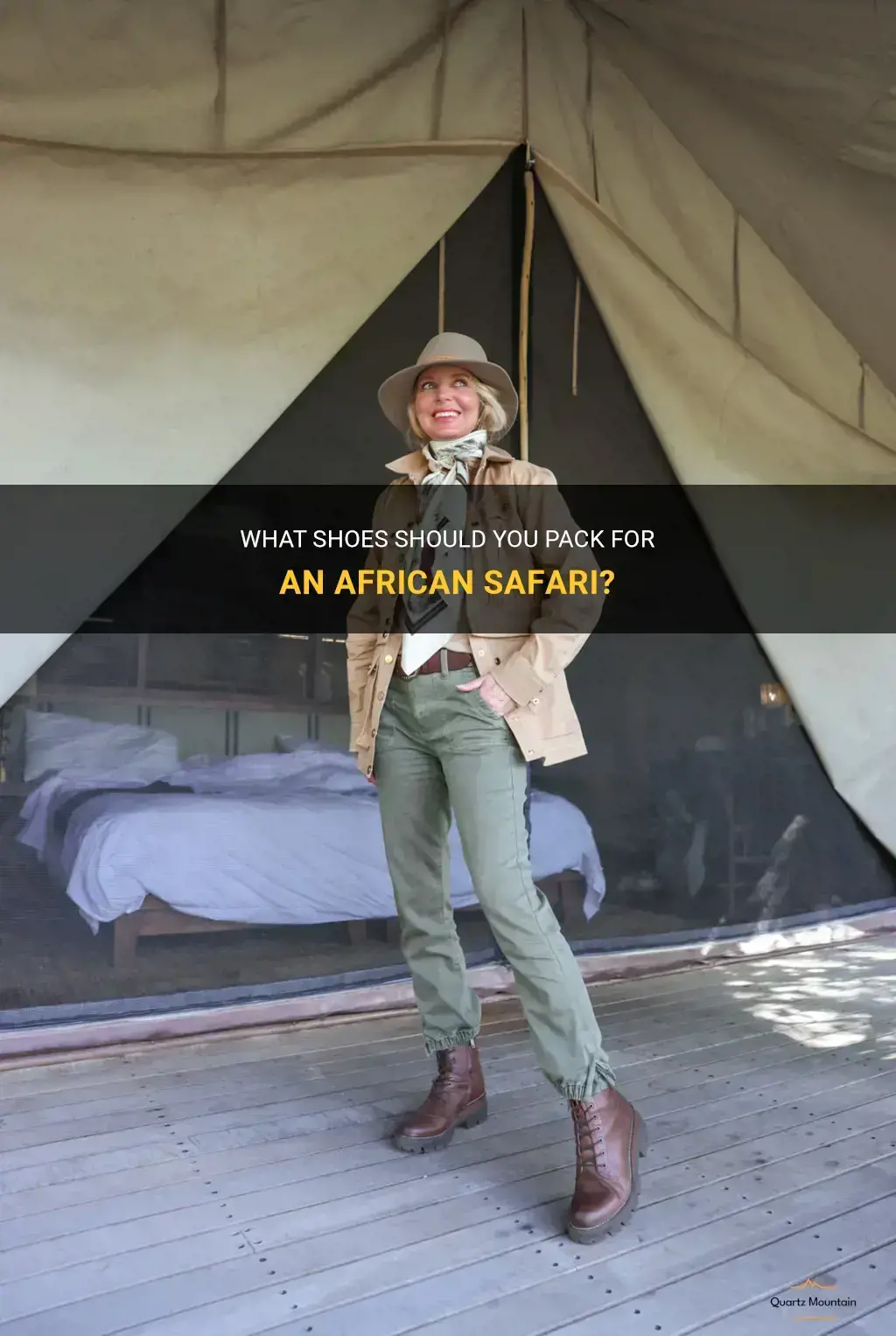
Pristine landscapes, exotic wildlife, and the thrill of adventure await those planning an African safari. But amidst the excitement of planning the journey, one crucial question remains: what shoes should you pack? As you traverse rugged terrains, navigate through dense forests, and encounter diverse wildlife, your choice of footwear can make or break your safari experience. In this article, we will guide you through selecting the perfect shoes to ensure comfort, durability, and most importantly, a safe journey through the wild wonders of Africa. So, lace up your boots and let's embark on this footwear expedition together!
What You'll Learn

What are the best shoes to pack for an African safari?
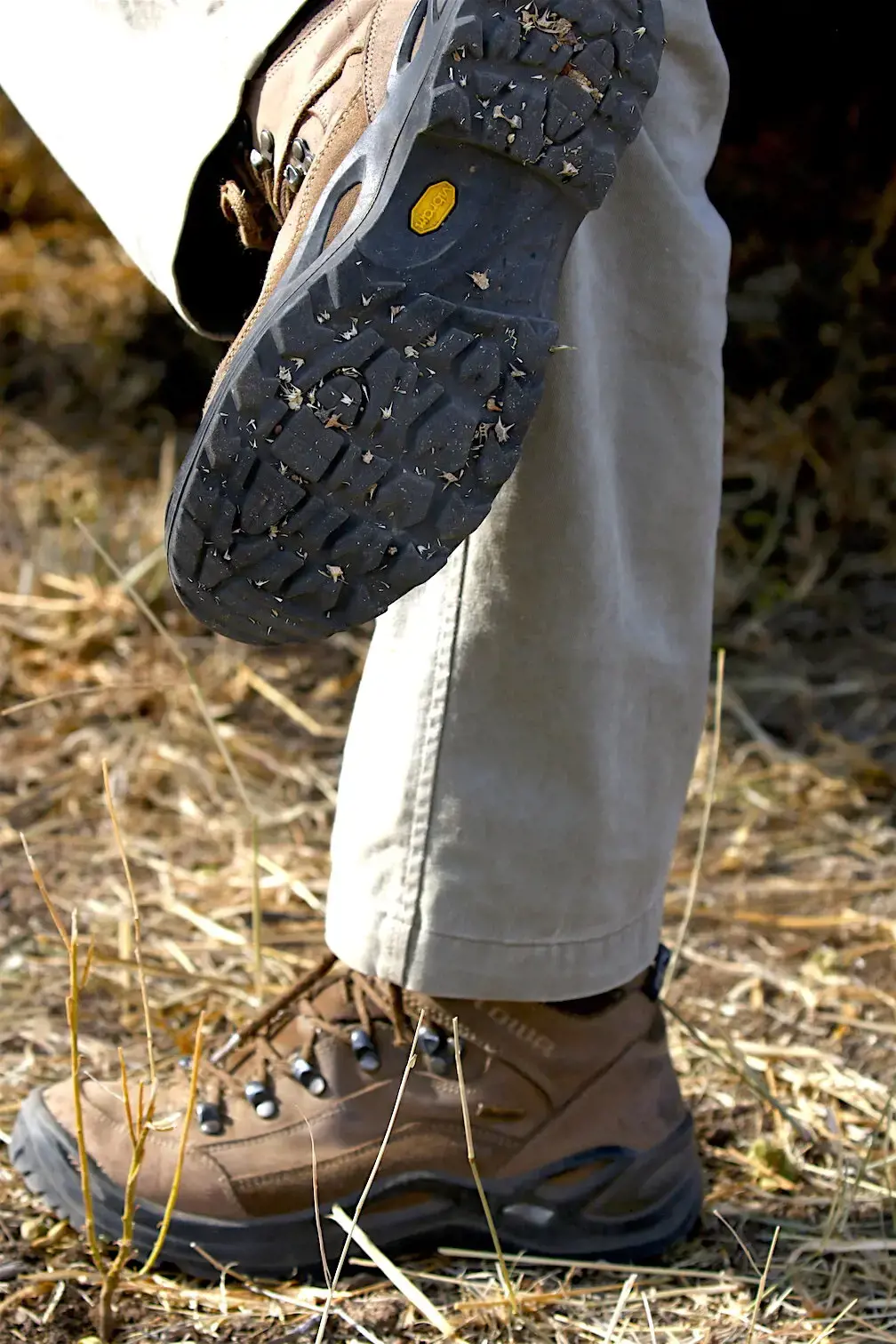
When preparing for an African safari, it is important to pack the right shoes to ensure comfort and safety during your adventure. The terrain and weather conditions in Africa can vary greatly, so choosing the appropriate footwear will make a big difference in your overall experience. Here are some of the best shoes to pack for an African safari:
- Hiking boots: A sturdy pair of hiking boots is essential for any African safari. Look for boots that are waterproof, have good ankle support, and a durable sole. These will provide the necessary traction and protection when trekking through various terrains, including rocky paths, muddy trails, and uneven ground.
- Sneakers or trainers: Depending on the type of safari you choose, you may also need a comfortable pair of sneakers or trainers. These are perfect for game drives or walking safaris where you won't be doing much hiking. Opt for lightweight and breathable materials to keep your feet cool and comfortable.
- Sandals or flip flops: It is also important to pack a pair of sandals or flip flops for downtime at your camp or lodge. These will allow your feet to breathe and relax after a long day of adventuring. Choose a pair with good arch support and a non-slip sole for added comfort and safety.
- Water shoes: If you plan on participating in any water-based activities, such as canoeing or boat trips, it is advisable to bring a pair of water shoes. These shoes are designed to provide grip on wet surfaces and protect your feet from sharp objects or rocks in the water.
- Socks: Don't forget to pack plenty of socks! Opt for moisture-wicking socks that will keep your feet dry and prevent blisters. Consider packing both lightweight and heavier socks to accommodate different weather conditions.
When it comes to footwear for an African safari, comfort, durability, and versatility are key. Make sure to break in your shoes before your trip to avoid any discomfort or blisters. Additionally, always check the weather conditions and activities planned for your safari to choose the most appropriate footwear.
Here are some examples of how different shoes can be suitable for specific safari activities:
Example 1:
If you are going on a walking safari in the grasslands of the Serengeti, a sturdy pair of hiking boots would be your best bet. These boots will provide the necessary support and protection for walking long distances and navigating through uneven terrain.
Example 2:
For a water-based safari in the Okavango Delta, a pair of water shoes would be essential. These shoes will allow you to comfortably walk in shallow waters and protect your feet from any hidden hazards.
Example 3:
If you will be primarily doing game drives in the Kruger National Park, a pair of comfortable sneakers or trainers would be suitable. These shoes will provide enough comfort for sitting in a vehicle for long periods while still being suitable for short walks during stops.
In conclusion, choosing the right shoes for your African safari is crucial for a comfortable and enjoyable experience. Remember to consider the type of activities you will be engaging in, the weather conditions, and the terrain you will encounter. With the right footwear, you can fully immerse yourself in the beauty and adventure of Africa.
Essential Items to Pack First When Moving Your Bedroom
You may want to see also

Are hiking boots necessary for an African safari?
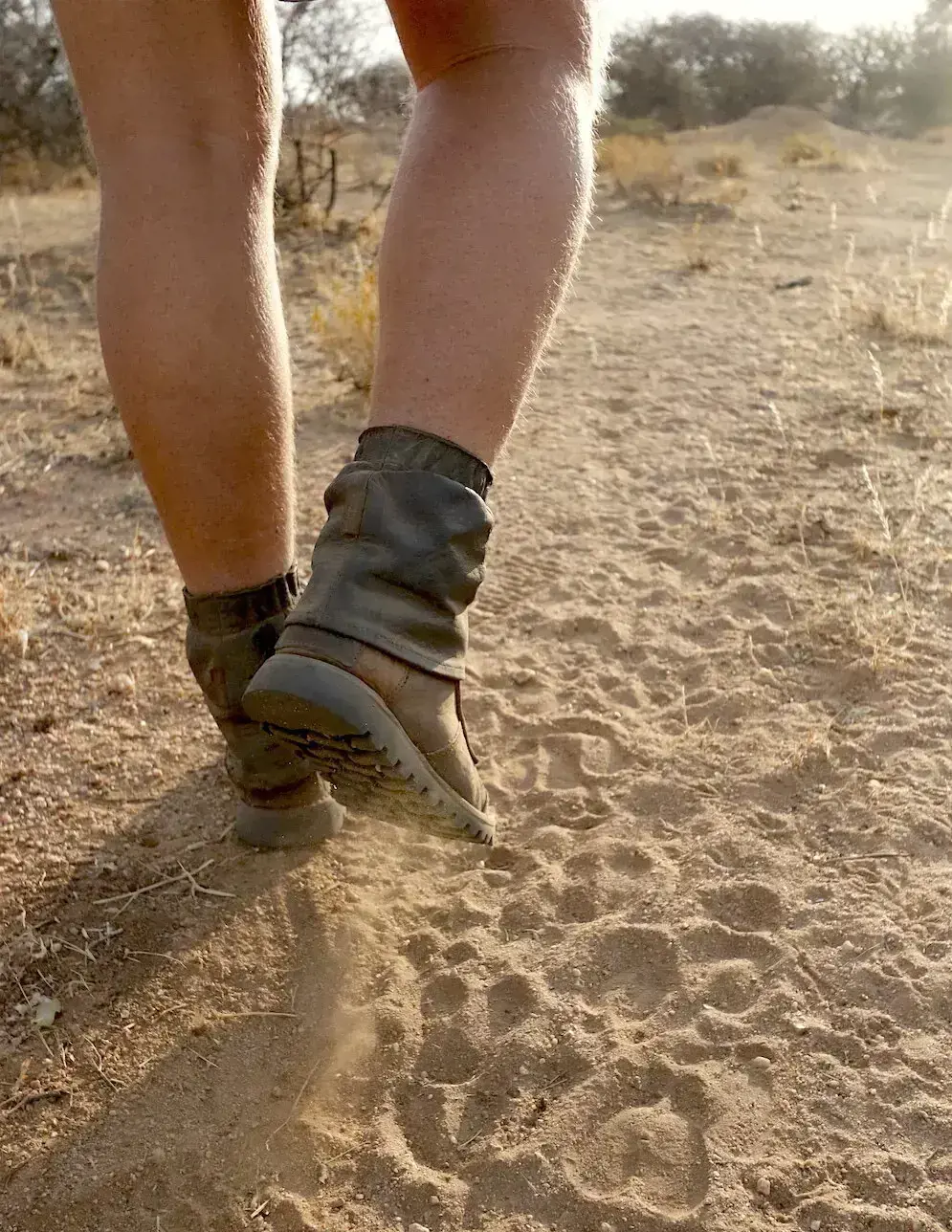
When planning for an African safari, one of the essential items that come to mind is a pair of sturdy and comfortable shoes. But do they need to be hiking boots specifically? The answer may vary depending on factors such as the type of safari and the terrain you will encounter. In most cases, hiking boots are highly recommended for an African safari due to their durability and support.
Firstly, let's consider the terrain typical of an African safari. Africa is known for its diverse landscapes, ranging from grassy savannas to thick jungles and rocky hills. Navigating through these terrains can be demanding on your feet and ankles if you are not wearing appropriate footwear. Hiking boots provide superior ankle support and have thick rubber soles that improve stability and traction. This is especially crucial when walking on uneven or slippery surfaces, as you may encounter during a safari.
Secondly, hiking boots are designed to withstand rugged conditions. While other types of shoes, such as running sneakers or sandals, may be more comfortable in certain situations, they are not built to handle the wear and tear of an African safari. Hiking boots are made with durable materials that can endure the constant walking and exposure to rough terrain. Additionally, they provide protection from thorns, sharp rocks, and potentially dangerous insects that you may encounter during your safari.
Furthermore, the unpredictable weather in Africa adds another layer of importance to wearing hiking boots. Some safaris take place during the rainy season when trails can become muddy and slippery. Hiking boots with their waterproof features and sturdy grip can help prevent accidents and keep your feet dry and comfortable. They also provide insulation in colder weather, ensuring that your feet stay warm even during chilly early morning or evening game drives.
Experienced safari-goers also recommend wearing hiking boots because they offer excellent arch support. Walking for long hours and going on game drives can be physically demanding, and the right footwear can make a significant difference in your comfort level. Hiking boots are designed to provide superior cushioning and support, reducing fatigue and minimizing the risk of foot injuries such as blisters or plantar fasciitis.
To illustrate the importance of hiking boots during an African safari, let's consider the following example. Imagine you are on a walking safari in a game reserve, exploring the wilderness on foot. Without the proper footwear, you may struggle to keep up with your guide or feel discomfort and pain after just a short distance. On the other hand, wearing hiking boots will allow you to navigate the terrain with ease, focus on the breathtaking wildlife around you, and enjoy the experience to the fullest.
In conclusion, while it may be tempting to opt for more lightweight or casual shoes, investing in a pair of hiking boots is highly recommended for an African safari. The support, durability, and protection they offer make them the ideal choice for traversing the diverse landscapes and unpredictable conditions you may encounter. So, before embarking on your safari adventure, make sure to pack your trusty hiking boots and get ready to explore the wonders of Africa in comfort and style.
The Essential Packing List for a 7-Day Cruise
You may want to see also

Are sandals suitable for an African safari?
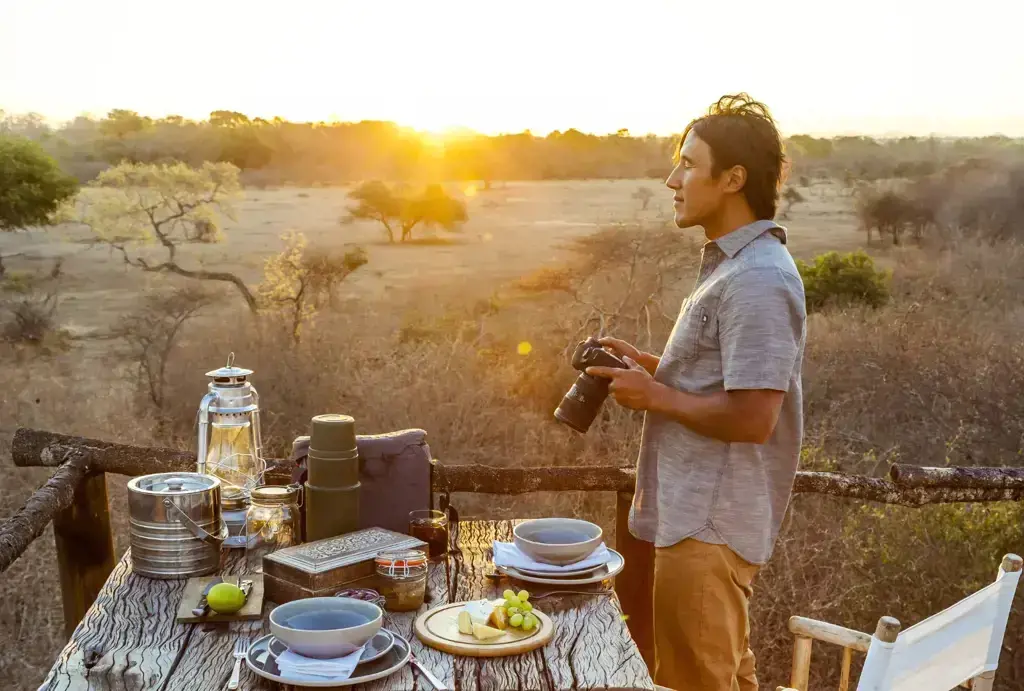
Heading: Are sandals suitable for an African safari?
Introduction:
When it comes to choosing footwear for an African safari, practicality and comfort are key considerations. As travelers embark on their adventure through the vast landscapes and diverse wildlife of Africa, they may wonder whether sandals are a suitable choice. In this article, we will explore the pros and cons of wearing sandals on an African safari, taking into account scientific evidence, personal experiences, step-by-step guides, and examples.
Scientific Evidence:
Scientifically, it is important to consider the terrain and potential risks encountered during an African safari. Africa is known for its rough and uneven landscapes, which may include rocky terrains, thorny bushes, and uneven ground. This presents the first challenge for sandals, as they typically do not provide the necessary protection for the feet. Wearing sturdy shoes, such as hiking boots, is often recommended to prevent injuries, as they provide ankle support and have a hard sole that protects against sharp objects or uneven surfaces.
Experience:
Personal experiences from seasoned travelers can provide valuable insights into the suitability of sandals for an African safari. Many travelers who have ventured across Africa often advise against wearing sandals due to the risk of injury. They recount instances where sandals proved inadequate in protecting their feet against sharp rocks, thorns, or insect bites. Remembering encounters with venomous creatures, such as snakes or scorpions, travelers emphasize the importance of having enclosed footwear to protect against potential bites.
Step-by-step Guide:
To further illustrate the unsuitability of sandals for an African safari, let's examine a step-by-step guide for an adventure on foot.
Step 1: Research the specific region or game reserve you plan to visit. Consider the terrain, climate, and potential risks.
Step 2: Identify the footwear requirements for the safari. Most safari tour operators recommend closed-toe shoes, such as hiking boots, for maximum protection and comfort.
Step 3: Visit a reputable outdoor gear store to find appropriate footwear. Speak with knowledgeable staff who can recommend shoes suitable for the specific safari you plan to undertake.
Step 4: Try on various shoe options to ensure a proper fit. Consider factors such as ankle support, sole thickness, and comfort.
Step 5: Test the chosen footwear before the safari. Take short walks or go on hikes wearing the shoes to ensure they are comfortable and suitable for the intended purpose.
Examples:
To emphasize the unsuitability of sandals on an African safari, let's consider two examples.
Example 1: Sarah, an adventurous traveler, decided to wear sandals on her African safari to save space in her luggage. While on a walking safari, she encountered a thorny bush and found herself unable to navigate through it without getting injured. This incident led Sarah to realize the importance of closed-toe shoes for protection.
Example 2: Jackson, an experienced safari guide, always advises his guests to wear proper footwear. On one particular trip, a guest wore sandals and ended up getting bitten by a snake. The incident could have been avoided if the guest had followed the recommended footwear guidelines.
In conclusion, scientific evidence, personal experiences, step-by-step guides, and examples all point to the unsuitability of sandals for an African safari. The rough terrain, potential risks, and need for foot protection make closed-toe shoes, such as hiking boots, the more practical and safe choice. Ensuring the right footwear is worn enhances the overall experience of an African safari by providing comfort, protection, and peace of mind. So, when planning an African adventure, it is wise to leave the sandals behind and opt for suitable footwear that guarantees a safe and enjoyable safari experience.
What to Pack for a Carnival Adventure: Your Complete Guide for Fun and Festivities
You may want to see also

Should I pack both closed-toe and open-toe shoes for an African safari?
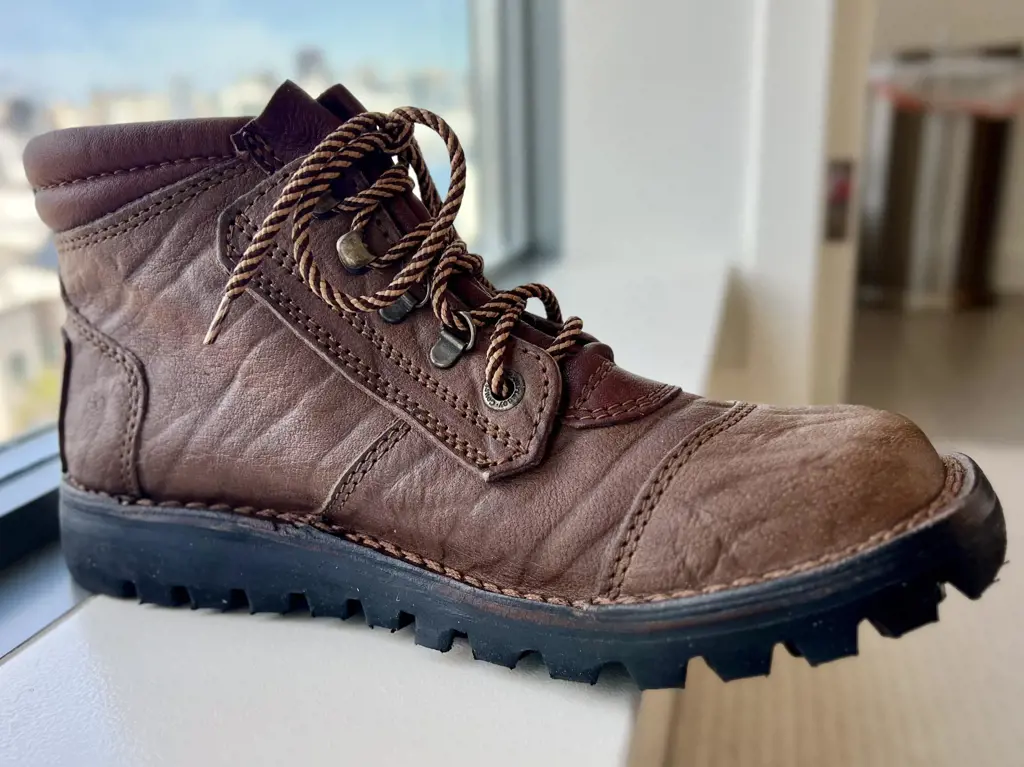
When planning for an African safari, it is important to pack the right kind of shoes to ensure your comfort and safety during your trip. One common dilemma that many safari-goers face is whether to pack both closed-toe and open-toe shoes. Here, we will discuss the advantages and disadvantages of each type of shoe and help you make an informed decision.
Closed-toe shoes, such as hiking boots or sturdy sneakers, offer several benefits. First and foremost, they provide better protection for your feet. In areas where there are thorny bushes or rocky terrains, closed-toe shoes will prevent any injuries or discomfort. Moreover, closed-toe shoes are generally more supportive and provide better traction, making them ideal for long walks or hikes during your safari. They also protect your feet from insect bites and stings, which can be a nuisance in some regions of Africa. Thus, packing closed-toe shoes is a wise choice for their durability and ability to ensure your feet remain safe and secure.
On the other hand, open-toe shoes, such as sandals or flip-flops, have their own advantages. They are lightweight and breathable, which can be ideal for hot weather conditions. Open-toe shoes allow your feet to remain cool and ventilated, preventing sweat and odor. Additionally, they are convenient for activities such as relaxing at your lodge or venturing out on a short walk within the camp premises. Open-toe shoes are also easy to slip on and off, which can be desirable for quick transitions between activities. However, it is crucial to note that open-toe shoes do not offer the same level of protection as closed-toe shoes, so they may not be suitable for long hikes or bushwalks.
Ultimately, whether you decide to pack both closed-toe and open-toe shoes or just one type depends on the nature of your safari and the activities you plan to engage in. If your itinerary includes extensive walking or hiking, it is best to prioritize closed-toe shoes for optimal safety and comfort. However, if your safari involves mainly game drives and leisurely activities, open-toe shoes can provide the lightness and breathability you need.
Furthermore, it is also important to consider the specific destination of your safari. Some areas in Africa may have different terrain or weather conditions that could influence your choice of footwear. For instance, if you are visiting a region with a wet climate or muddy trails, closed-toe shoes with good traction are essential. Conversely, if you are exploring a dry and arid region, open-toe shoes may be more suitable.
In conclusion, packing both closed-toe and open-toe shoes for an African safari can be advantageous. To ensure your comfort and safety, closed-toe shoes are recommended for activities involving walking or hiking in rugged terrains. Open-toe shoes, on the other hand, are ideal for leisurely activities and hot weather conditions. By considering the specific nature of your safari, the terrain, and the activities you plan to undertake, you can make an informed decision and pack accordingly.
Essential Items to Pack for a December Trip to Hawaii
You may want to see also

What features should I look for in safari shoes to ensure comfort and durability?
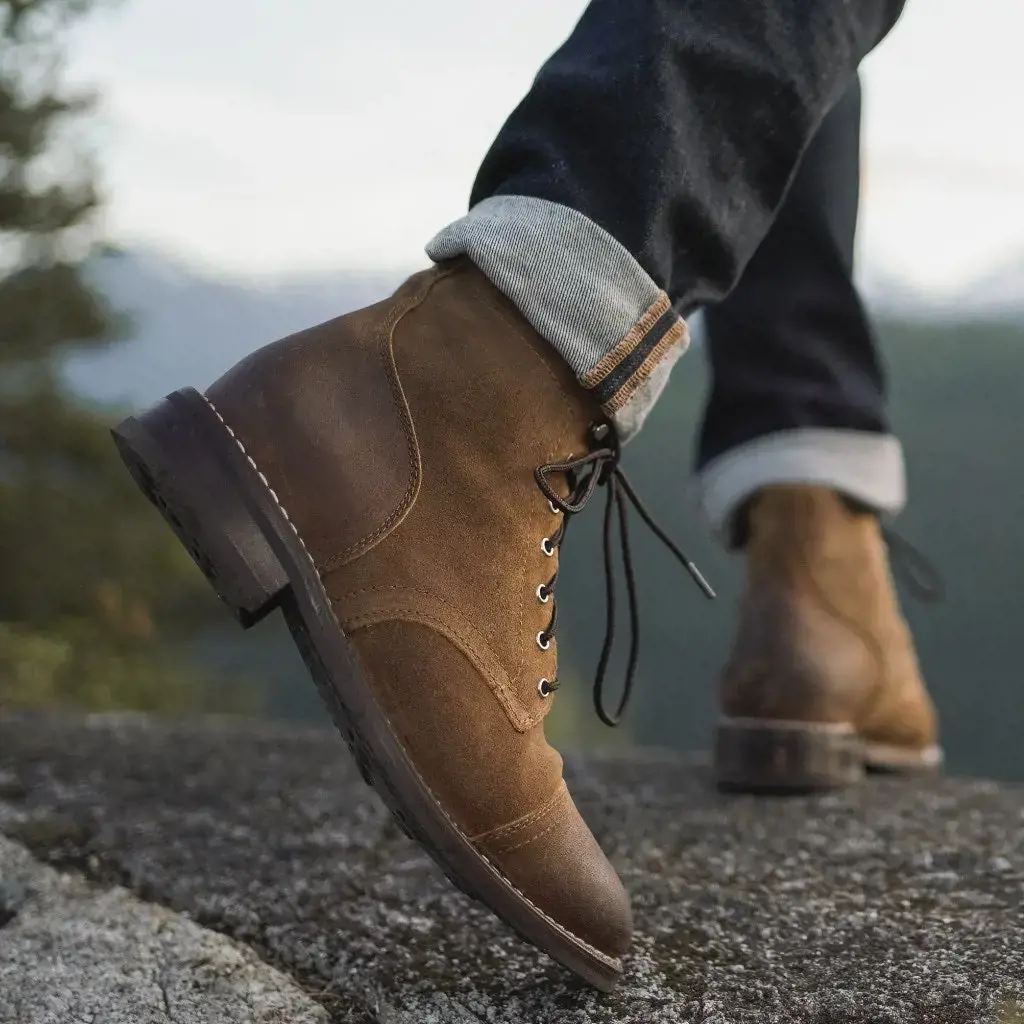
Safari adventures can be exciting and adventurous, but they can also take a toll on your feet if you don’t have the right shoes. When it comes to choosing safari shoes, it is important to look for features that ensure comfort and durability. Here are some key features to consider when shopping for safari shoes:
- Sturdy Construction: One of the most important features to look for in safari shoes is sturdy construction. The shoes should be made from high-quality materials such as leather or synthetic materials that are designed to withstand rough terrain and rocky surfaces. The soles should be thick and durable to provide ample support and protection.
- Comfortable Fit: It is essential to find safari shoes that fit comfortably on your feet. Look for shoes that have enough room in the toe area to allow for natural movement and prevent blisters. The shoes should have a snug fit around the ankle and heel to provide support and stability. Additionally, consider shoes with cushioning or padding in the sole for extra comfort.
- Breathability: Safari adventures often involve walking for long periods in hot and humid environments. Therefore, it is important to choose shoes that are breathable to prevent excessive sweating and discomfort. Look for shoes that have mesh panels or perforations to allow air circulation and keep your feet cool and dry.
- Slip-Resistant Soles: In safari settings, you may encounter slippery surfaces such as wet rocks or muddy trails. To ensure your safety and stability, opt for safari shoes with slip-resistant soles. Look for shoes that have deep treads and a firm grip to provide traction on different types of terrain.
- Water Resistance: Depending on the location and weather conditions, you may encounter water crossings or wet environments during your safari. Therefore, it is advisable to choose shoes that are water-resistant or have some level of water protection. Water-resistant shoes will help keep your feet dry and comfortable even in wet conditions.
- Lightweight Design: Since you will be walking and possibly hiking during your safari, it is best to choose shoes that are lightweight. Lightweight shoes will reduce fatigue and allow for easier and more comfortable movement. Look for shoes that are made from lightweight materials and feature minimalist designs.
- Ankle Support: Given the uneven terrain and potential hazards in safari settings, ankle support is crucial. Look for shoes that provide good ankle support to help prevent twisting and injury. Shoes with higher ankle collars or additional support features can help provide stability and protect your feet and ankles.
- Easy to Clean: Safari adventures can be messy, with dust, dirt, and mud being a common occurrence. To ensure the longevity of your shoes, choose ones that are easy to clean. Materials such as leather or synthetic materials that can be wiped clean with a damp cloth are ideal for safari shoes.
In conclusion, when looking for safari shoes, it is important to prioritize comfort and durability. Sturdy construction, a comfortable fit, breathability, slip-resistant soles, water resistance, lightweight design, ankle support, and easy cleaning are all important features to consider. By choosing shoes that possess these features, you can ensure a comfortable and enjoyable safari experience while protecting your feet from the demands of the wild.
Essential Items to Pack for Your November Trip to Morocco
You may want to see also
Frequently asked questions
When packing for an African safari, it is important to choose footwear that is comfortable, durable, and suitable for the terrain you will encounter. Opt for closed-toe shoes, such as hiking boots or sturdy sneakers, that offer good ankle support. These will protect your feet from thorns, rocks, and other potential hazards you may encounter during safari activities.
While flip-flops and sandals may be comfortable for lounging at the lodge or relaxing by the pool, they are not recommended for safari activities. Open-toe footwear leaves your feet susceptible to injury from thorns, insects, and other wildlife. It is best to stick to closed-toe shoes for your safety and comfort while on safari.
It is advisable to pack a pair of waterproof shoes, especially if you are visiting during the wet season or plan to participate in water-based activities such as river cruises. Waterproof shoes will keep your feet dry and protected from muddy or wet conditions, ensuring you can enjoy your safari without discomfort or risk of slipping.
Sneakers can be a suitable choice for an African safari, as long as they are sturdy and provide adequate support. Choose sneakers with a good grip sole that will allow you to navigate different types of terrain, from dusty paths to muddy trails. Some safari lodges and camps also have specific guidelines on footwear, so it is best to check with your tour operator or accommodation provider for any specific requirements.
In addition to closed-toe shoes, it can be beneficial to pack a pair of lightweight and breathable sandals for times when you are not participating in safari activities or during downtime at your lodge. These will provide comfort and allow your feet to breathe in warmer temperatures. However, always ensure they have a solid sole and are suitable for walking short distances if needed.







